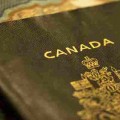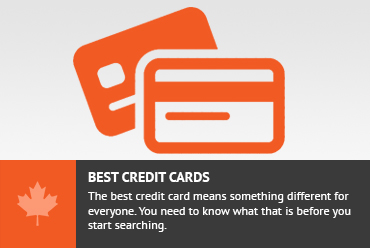When I published my post about How to Sell Everything to Travel, a reader wrote in with her experiences about the other side; what it’s like returning home after travelling and starting over again. Not everybody travels for life, and things can change when you’re away; friendships, financial situations, and job markets for example.
Dear Nora,
I sold everything to travel almost three years ago. Now that my travels are winding down, I regret having sold everything. I’m also told I’ll expect difficulties in renting an apartment and leasing a car with no proof of income. Maybe it’s time to discuss returning home after travelling so there aren’t any nasty surprises? – Laurie
Laurie brings up some great points. In some cases, a bit of knowledge and preparation can exponentially help you on returning home after travelling.
The process of reintegrating culturally to your home country after travelling has been widely written about. Instead, this article is going to take a hard look at the nitty gritty of returning home after travelling; socially, financially, and logistically. I chatted with Laurie and three other travellers who have returned home to start their lives over again after travel, and shared their challenges and advice with me. Here’s what they had to say:
STUFF: TO SELL OR NOT TO SELL?
When I sold everything to travel, I knew I was taking a loss on many items, some of which were irreplaceable in a sense. But I was pretty confident that I wouldn’t ever return to Toronto to live, and it didn’t make sense to pay hefty storage fees in the meantime. I found the process of selling everything both liberating and cathartic. But not everybody I spoke to was as happy with their decision, when it came time to start over again.
Laurie Carvill – Living la Vida Laurie: Better to Store It
After taking six months to sell everything and wrap up her successful consulting business, Laurie left home in May 2013. She travelled for the next three years, covering off all 50 U.S. States, Central and South America, Asia, Europe, and the Middle East. Exactly three years and two weeks later, she returned to set up shop again in California.
“Over my adult life I had accumulated some nice “things” (tempurpedic bed, furniture that wasn’t assembled from a box, high thread count sheets, fancy wine glasses, top of the line appliances, etc.). Just high-quality items that I would have “forever”. Well, in my haste, I sold it all on Craigslist or gave it all away. Fast forward: my trip was awesome and I don’t regret a day of it. I do regret not keeping my stuff.”
When Laurie initially wrote to me, she said she was overwhelmed at restarting everything including refurnishing her life. Starting from zero with limited funds meant no tempurpedic beds would be in her immediate future. She said, at 41, she felt like a college student again.
“If I could do it again, I would’ve put my stuff in storage. It would have cost me, but probably less than the replacement costs of buying everything new again. It would’ve made for a softer landing to rent an apartment and be surrounded by familiarity when right now, everything in the U.S. feels a bit foreign.”
Laurie’s advice is if you have high quality things, consider storing them or loaning them to friends while you’re away. But if your apartment is furnished in Ikea already, by all means purge everything and start anew.
Selling everything, however, did have some upsides for Laurie. She relocated to San Diego from San Francisco (where she lived before travelling). “Moving into my apartment was the easiest move ever! My suitcase and a few Rubbermaid tubs of souvenirs and clothes.” A friend of Laurie’s also donated various things she no longer needed, so Laurie ended up with a “move-in kit” that had all the basics like bedding, a coffee maker, etc.
Tiffiney Lozano – Wild Child Travels: Happy to Have Sold it All
Tiffiney and her husband Diego and their two small children left a suffocating life in the States to live on a sailboat. Two years later, they returned home in a campervan, understanding that happiness isn’t a place but rather a choice. They still have lots of wanderlust, but at the moment enjoy having their own backyard.
By contrast to Laurie, Tiffiney was grateful that they didn’t put anything in storage. “We would have spent a fortune hanging onto our belongings, and this way I get the thrill of buying new things. Second-hand stores and local classified ads are always filled with treasures for anyone willing to put in the time. We had nothing—not a dish, fork, towel, sheet or couch to wallow on—but within a few short weeks had furnished our home and made it cozy and inviting again.”
Katie Aune: Slightly Overdid It, But Wished the Condo Had Sold
Katie Aune quit her job as an associate director of development at a Chicago law school in August 2011 to spend a year travelling and volunteering, primarily through the countries of the former Soviet Union. She ultimately spent 13 months on the road, visiting 20 countries.
“I think I overdid it on selling stuff – I did keep a lot in my parents’ basement, but when I moved back, I found myself re-buying a lot of the exact same items I had before. I also had a really nice baker’s rack that I loved and I gave it away because I had no place to store it and couldn’t sell it. I would love to have that back.”
At the same time, Katie’s biggest regret is not having sold her condo before she left. The market wasn’t good, so she rented it out, covering off the mortgage but not the condo association dues, which she had to budget for. “I think having the condo always hung over my head – if I had been able to sell it, I would have been completely free and likely would have felt more open to travelling longer or at a slower pace.”
COST OF LIVING: STICKER SHOCK
Many travellers make their money go further in places like Asia and South America. Returning home from travelling and making ends meet, much less “keeping up with the Joneses”, can be challenging.
Turner Wright – Once a Traveler: Financial Independence is Now Out of Reach
In 2006 Turner sold everything to travel to Japan. For the last 10 years he has travelled intermittently to over 20 countries and five continents. He made a few serious attempts to return to the States to “settle down” over the years, but when they didn’t work out he went travelling again. He’s now planting some roots in San Francisco.
Turner recently published a post about his 10 years of travel that looks at some of the harsh consequences he experienced in returning home after travelling and living an unconventional life for so long. He struggles with the cost of living and becoming financially independent. “We tend to spend more money staying in one place than when we’re travelling. It doesn’t help that I chose an expensive city like San Francisco as my base of operations. I have absolutely no hope of ever being financially independent; I will never have enough money to own a house or be comfortable in a middle-class lifestyle. The numbers will never add up.”
Tiffiney: Depends on Where You Live
Tiffiney and her family have had a much easier time of it. Their home is in a very economical rural mountain town in California, and their extra-curricular activities are cheap with the great outdoors on their doorstep.
“For us, life was more expensive in Barcelona. We paid as much for a small one bedroom apartment as we paid for our mortgage back in California.”
Tiffiney and her family also lived in cheaper places when they travelled, such as Oaxaca Mexico, where their money went much further. “Our time in Oaxaca was great for that, but we also missed having clean drinking water and decent water pressure. I guess everything is a trade-off. For us, we had bills back home—so travelling didn’t necessarily save us much other than groceries and going out.”
EMPLOYMENT: CHANGING JOB PROSPECTS
Depending on how long you’re out of the job market while travelling, finding employment on your return can be difficult; whether it’s a matter of having outdated skills or an unjustifiable gap in your resume.
Katie: Made Travel a Plus on Her Resume
For Katie, finding a job was surprisingly easy. Her first job offer came in three weeks after returning! She ultimately had five job offers and was employed again within four months.
“I think I did several things right in that regard: first, I included my trip on my resume and played up the volunteer experiences, learning a foreign language, starting my blog and the travel writing/social media work I did. So it definitely was not a gap! Second, I used a functional resume instead of a chronological one so that my most relevant experience was at the top. Third, I had great experience before I left so my resume was very solid and I was perfectly qualified for most of the positions I applied for.”
Laurie: Career Break = “Mat Leave”
In a professional sense, Laurie’s travels didn’t set her back. “So far in the work world I have gotten nothing but positive feedback and awe tinged with jealousy. I think the idea of a “gap” in your resume being a negative thing is simply outdated. I sometimes think about it like women (and occasionally men) will take off a few years to have a baby. This trip was my baby.”
Turner: Career Prospects are Slim
Turner hasn’t had such an easy time of it, with unrewarded efforts to find a satisfying job. “If I could do it all over again, I might choose to enter the 9-to-5. Hear me out. Travel has opened many doors, professional and personal. However, it has not provided me with any kind of career in which I could enjoy true financial independence…yet. More than likely I would have had more savings, better stability, and more possessions if I had taken that entry-level job after graduation and continued up the ladder. Unfortunately, I’d also be a very boring person to know.”
Tiffiney: Align Your Skills With Your Passion
Despite numerous gaps in her resume, Tiffiney never had trouble getting a job. “In today’s global economy, we need to be self-motivated problem solvers who can relate to different kinds of people—I’d argue nothing better prepares you for that than travel.”
Tiffiney spent most of her 20’s working too much, for not enough money. “Most of my paycheck went to meeting the expenses associated with having a job! I needed a car to get to work, certain clothes to look the part, etc, and looking back I realized I was mostly working to continue working.”
With experience and perspective, Tiffiney prefers to make lifestyle choices that are interwoven with – instead of dictated by – her career. “At a certain point in our lives we have plenty of skills and we have our unique interests. Find that sweet spot where your skills overlap with your interests and what people are willing to pay for, and either find a job that nourishes your interests or create your own.”
And she says if we make the right spending decisions, we might not need to work as hard. “Of course we all need money to live in modern society, but if we love rock climbing and back country snow skiing, we may not need as much money as we think. It’s really about aligning our daily decisions (on how to spend our time and money) with our biggest values.”
FINANCIAL CHALLENGES: STARTING OVER
Some travellers ensure they have a financial cushion, so returning home after travelling isn’t too difficult. But even so there can be challenges – with credit issues, debt, floating expenses, or travels being more costly than anticipated.
Laurie: Credit/Proof of Income Can be Problematic
When Laurie returned from her travels, she had a nice financial cushion in place to float her expenses, but was told that without having had an income for the last three years, she wouldn’t be able to get an apartment or car. Luckily she found ways to work around this. “I was able to lease a car, but I had to *ahem* project my monthly income on the credit application. The finance guy said that he could not submit the application with my income listed as $0, so I projected $4000/month. My credit history was perfect, which is probably why they leased me the car anyway.”
As for finding an apartment, many landlords require proof of income, which was problematic for Laurie. This was where her travel experience came in handy: “I looked into a longer term AirBnb rental, where I could basically pay rent on a credit card. I also have 25 excellent reviews on AirBnb, and I planned on using these to show potential landlords my worthiness.” She also said that subletting was a possibility, since proof of income is rarely required for sublets.
In the end, Laurie found a roommate who already had a place, and allowed her to pay month-to-month while she gets her business going and finds her own place. “Another huge advantage is that the place was furnished and the kitchen outfitted, so all I needed to buy was a bed and a desk.”
Turner: A Financial Cushion and No Credit Card Debt is Ideal
Turner recommends keeping an eye on credit cards, and having a financial cushion. “I believe in using credit cards to get airline and hotel points, but like anything else, you should pay them off immediately. I let small balances accrue, and it hasn’t helped me sleep at night. Although I know I’m just one big paycheck away from putting a deposit down on an apartment and buying furniture, having a foundation can be very relaxing…as long as you don’t let yourself become a victim of ennui.”
Tiffiney: Getting Duped on the Road
Tiffiney and her family decided to travel because they were unhappily locked into a life that wasn’t satisfying. “One of the gifts of travel was getting ourselves off the “monthly” lifestyle. Phone plans, car payments, anything can be financed these days—but they are golden handcuffs in my opinion.” But they’d also buried themselves in debt, which required selling their home and assets to pay it off.
Unfortunately on the road, they created more debt for themselves, but of a different nature. “I invested a good portion of my time into a business with a trusted mentor and friend with the promise of money down the line. A few months in, it was apparent our style of business and ethics weren’t a match. We had no contracts in place, and I wasn’t compensated for my time, nor my financial investments in the new things we created. Things ended poorly and everything was absorbed into her existing business. Ouch. That was a big factor in us coming back to our home base. I needed to be someplace I felt nourished and supported to rebuild myself financially.”
Tiffiney adds that she was grateful for the experience, for having taught her to invest into her own dreams instead of others’. She now has more clarity around her interests, skills, and values.
Katie: Financial Cushion Made for a Softer Landing
Katie returned from her travels with about $4,000 in cash savings. “I spent two years budgeting and saving for my trip, and I included a cushion for finding a job again when I returned. I also took my student loan payments into account as part of my budget. Probably the only downside is having about two years where I wasn’t contributing to my retirement savings.”
Katie stayed with her parents initially when she returned, so her expenses were relatively low. She suggests that if you don’t have a free place to stay before you find a job, you should have a bigger financial cushion.
FRIENDSHIPS: HOW THEY’VE CHANGED
Friendships evolve when you spend years apart. People change (or not). They move on (or not). Friendships endure (or not). Sometimes this comes as a shock to somebody returning home after travelling; in other cases, it’s a relief.
Laurie: Nothing Really Changed
Overall, Laurie’s friends and family supported her travels, occasionally with a dose of harmless envy or jealousy. “My good friends before the trip are still my good friends. I had a few friends come visit me during my travels, and we became even closer. Honestly, everyone has their own lives, so my trip was really of little consequence to them, as they were getting married, having babies, etc. while I was gone. Most friends were like “welcome back! How was it?” and I was like “good!” and that was it. We just went back to our regular conversations.”
If anything it’s this “normalcy” that threw Laurie off. While she didn’t want to brag about her trip, she did want to talk about her special experiences living abroad for three years. Only one person took interest and asked her intelligent questions about her trip.
“I’m really ok with my friendships going right back to regular. It was comforting to me, like having a few of the possessions I had before.”
Tiffiney: Friendships Have Been Reprioritized
Tiffiney is grateful to their travels for getting her family out of a normal routine and superficial friendships. “Everything from volunteer commitments, to relationships we had due to mutual activities such as work or children’s sports, fell away. Those who we’ve reconnected with since returning, are those bonds where we really enjoy and value one another for the friendship, not just the convenience of circumstance. I guess you could say everything in our life, especially friendships and time commitments, are more intentional now.”
Katie: Friendships are Totally Different
Katie’s friendships are almost 100% different from those she had before she left. “Many of my friends at the time didn’t understand why I wanted to leave and I found it very challenging to keep in touch. When I returned, I had a different perspective and priorities than many of my friends who had gotten married, had children and/or moved to the suburbs while I was gone.” Even in making new friends, Katie found that mentioning her year overseas was a conversation stopper rather than a conversation starter!
“By and large, while I do still keep in touch with some of the friends I had known for years before my trip, my closest friends now tend to be people I either met while travelling or met after I returned (often through travel-related events). I am also more comfortable and willing to do things on my own – I spent 13 months doing pretty much everything solo, so there’s no reason why I can’t go to a show or a sporting event or happy hour on my own now that I’m home.”
Turner: Friendships Take Effort
Turner takes friendship seriously, and is dismayed by the lack of effort others invest into friendships. On his site, he writes : “If you want someone in your life, it’s going to take effort; relegating a friend to nothing but a few messages that don’t even hold your full attention isn’t just rude…it’s unworthy of friendship, even in this age of texts and Snapchats.”
So he doesn’t really keep in touch with anybody from his hometown, preferring a network of travel friends with whom he speaks online and meets up when they pass through. “However, I’m beginning to see the value in being around long enough to cultivate friendships in person; even though we may only be a few miles apart, the dynamic between stable friends and travel friends is pretty much the same:
Travel friend: I’m in another country and can’t meet tonight
Stable friend: I’m busy tonight. How about in two weeks?
It’s all about scheduling and putting in the effort to meet and talk.”
PARTING ADVICE
When I asked these four travellers for their parting words of advice, both Tiffiney and Laurie said “Just do it!” despite the challenges of returning home. But everybody also had something they wanted to emphasize, if you’re planning on hitting the road yourself:
Laurie: Keep Some Basics
“My only regret is not keeping some really basic stuff to get started (like basic kitchen stuff, sheets, towels), but I had no idea I would be back in the U.S. It could’ve ended up different if I relocated overseas, which I thought at the time was a possibility. I think if I could do it over again, I would try harder to find a place to store my stuff, like a friend’s attic or garage.”
Laurie did mention how grateful she was to have kept a few business outfits (which were immediately useful in job interviews), as well as having given her clothing to a friend who offered to give it back!
Tiffiney: Build a Business Before you Go
Tiffiney and her husband badly needed a change, and she says their two years of travel saved their marriage. So they hit the road as quickly as they could. But building a business while travelling is no easy task.
“Everything is harder when you’re on the road working. Much of your time is spent trying to just meet your basic needs: Wifi, nourishing food, a quiet space to work. Looking back, things would have been easier if we invested more time in building our own business before we left. But honestly we did what we needed to do. We’re extreme people and we needed a change. We might not have made it, had we waited.”
Turner: Maintain Stability at Home
Depending on how long you plan to travel, Turner recommends maintaining the infrastructure of your life while you’re gone. “Don’t sell your furniture and give up your lease; find a sub-letter, and keep it in your name. True, this does come with complications, but it can also be a source of income. Same with a car. Take a leave of absence instead of quitting (if possible). Stay in touch with friends and business acquaintances, above all these – PEOPLE will make it easier for you to return, not possessions.”
Katie: Get Your Finances Solid, and Keep in Touch
In contrast to Turner, Katie would have appreciated selling her condo to free her up for travel more. “Try to get yourself in a solid financial position – pay off your debts, sell your home if you have one – give yourself as much flexibility as possible because you don’t know what might come up or how you might change while you’re gone. My original plan was to travel for 10 months and I went for 13. If I hadn’t felt tied down by my condo, I might have gone for longer.”
Maintaining professional connections is also important: “connect with co-workers on LinkedIn, ask for recommendations/references, and update your resume before you leave your job – you won’t remember anything if you wait until you return!”
Nobody I spoke to regrets their travel experience; in most cases it helped rather than hindered their lives and careers. Sure, there can be some challenges when returning home after travelling, but with preparation and awareness, they can be largely overcome, and your trip can be as life-changing as you want it to be.
Dear Nora, reintegration, returning home after travelling











You have to realize that it is now very easy for middle class people to travel for extended periods of time and squeak by with low paying menial jobs or making a little money from websites, but to what end? It is good to have some international experiences, but where is the limit? How does this build one’s skills or career? It is not like you are the first one breaking new ground, this has been done many times by many people and it is getting easier to do. The majority of the population has to work for a living and do not travel extensively. It is a luxury of the middle class.
Hi Tim,
I agree completely – travel is a privilege, and one that is enjoyed by more and more people these days. But I disagree that it doesn’t build skills or career; it depends on what skills or career you are referring to. And with more and more people able to design careers to sustain their travels, travel can actually BE a career, if that’s what people are drawn to. But even if travel is just a sabbatical, putting it on a resume can (again, depending on the career) be a plus: with things like problem-solving skills, working under stress, interacting with people, sometimes doing humanitarian work, etc.